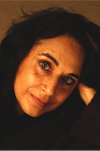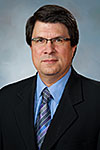Author to bring powerful stories from subconscious to reading series
Rikki Ducornet didn’t set out to become a writer. She started her career as a painter, and the writing crept up on her.
Each step of her writing career, from her first experiences writing poetry and other short pieces, to writing full novels and eventually teaching at universities and writing workshops, has taken her by surprise.
“Things have a way of pouncing like tigers,” she said. “Tigers are gorgeous and fierce. They roam the wild places, which is an idea I like intellectually – not to stay on safe ground.”
Ducornet, who also is a contributing editor to the American Book Review, will share some of her writing Jan. 28 as part of the University of Houston-Victoria/ABR Spring Reading Series. The event will take place at noon in the UHV University West Alcorn Auditorium, 3007 N. Ben Wilson St. The reading is free and open to the public.
“Rikki Ducornet is an enthralling author and gifted artist,” said Jeffrey Di Leo, dean of the UHV School of Arts & Sciences and ABR editor and publisher. “She uses language to paint incredible, emotional tales. I look forward to hearing her presentation to launch the spring series.”
Ducornet first began writing as a response to events in her life and the world around her. In the 1970s, Chile, a country she had lived in previously, was taken over by fascists. Around the same time, her mother died from cancer.
“That was a powerful time emotionally,” she said. “I found myself writing, and it just kept on happening. At some point years later, a novel pounced and threw me into a vortex of novel writing that lasted a decade.”
That first novel, “The Stain,” was tipped off by a powerful dream Ducornet had while living in rural France. Earlier that day, she had spoken with an elderly woman who told her about the significance of birthmarks in the area during the 19th century. As Ducornet was riding her bicycle home at sunset, she saw what looked like a ball of fire bounding across a meadow. The object was a jackrabbit, and it stopped and stared at her.
These experiences inspired a dream in which Ducornet was in a hovel similar to those in the village during the 19th century. She was helping a red-haired woman give birth to a baby daughter who had a jackrabbit-shaped birthmark covering half of her face.
“I woke up at 4 a.m., literally thrown out of bed, and found myself writing the first chapter of what I knew was going to be a novel,” she said “The energy of that dream was so extraordinary that it engendered three other books.”
Because the novel was precipitated by a dream, Ducornet began training herself in lucid dreaming, which is when the dreamer is aware of the dream. She would often use her dreams to find direction and footing. Even when the dreams were strange and cryptic, she usually was able to glean some tidbit of constructive input that helped her in crafting and unpacking the characters’ stories.
After a while, that method of accessing her inner creativity became less necessary as she continued to write. She developed a practice she calls the Deep Zoo, which focuses on engaging memory, dreams and an unfettered imagination.
“I think the process of creative writing searches from that same deep wellspring that our dreams come from, so it’s good to work that muscle and keep that portal open,” Ducornet said. “It’s fascinating when that creative energy is released. It’s an intense process and a compelling way to write.”
Much of the powerful and compelling energy for each book comes from the characters themselves, she said. Often, the character comes to her mind as a fully formed individual, which then leads to the unfolding of the book’s story.
“It’s risky writing books, especially the way I work, because the books reveal themselves to me as they’re written,” she said. “That often means I’m going into unexpected emotional landscapes, as well as unexpected areas of research, because characters absolutely demand that I know as much about them and their passions as they do. So, if I’m writing about a biologist, there’s work to be done. That’s part of the pleasure.”
As she prepares for her UHV presentation, Ducornet is considering reading some recent short stories and an excerpt from her novel, “Brightfellow,” scheduled for a July release.
“I want people to cherish their imagination and always remember that the questioning, imagining and creative mind is perhaps the most precious thing we have as human beings,” she said. “Imagination is something deeply human and essential to who we are.”
Other writers scheduled for the spring 2016 UHV/ABR Reading Series are:
Phoebe Gloeckner, Feb. 25 – Gloeckner is a graphic novelist. Her books have been published in multiple languages, and her artwork has been exhibited in galleries and museums across the U.S. and Europe. A film adaptation of her book, “The Diary of a Teenage Girl,” was released in August by director Marielle Heller. Gloeckner has long experimented with the form of the novel. “The Diary of a Teenage Girl” is a hybrid of prose and graphic novel, and her current projects, including a novel-in-progress about a family in Ciudad Juárez, Mexico, incorporate various media – audio, motion and static – with text.
Valerie Sayers, March 10 – Sayers, a professor of English at Notre Dame, is the author of six novels, including “The Powers.” Her literary honors include a National Endowment for the Arts fellowship, a Pushcart Prize and citations from The New York Times Book Review, Best American Short Stories and Best American Essays. Her stories, essays and reviews appear widely.
Ben Marcus, April 7 – Marcus is the author of several books, including the novel “The Flame Alphabet,” and a collection of short stories, “Leaving the Sea.” His fiction has appeared in Harper’s, Granta, Tin House and The New Yorker. He is the editor of New American Stories, an anthology of short fiction. Among his awards are the Berlin Prize and a Guggenheim fellowship. He lives in New York, where he is on the faculty at Columbia University.
Charles Bernstein, April 28 – Bernstein’s “Pitch of Poetry, New Essays,” will be out this spring from University of Chicago Press. His most recent book of poems is “Recalculating.” He is the Donald T. Regan Professor of English and Comparative Literature at the University of Pennsylvania, where he is co-director of PennSound. In 2015, Bernstein was awarded both the Münster Prize for International Poetry and the Janus Pannonius Grand Prize for Poetry.
ABR is a nonprofit, internationally distributed literary journal published six times a year. It began in 1977, moved to UHV in 2007 and has a circulation of about 8,000. The journal specializes in reviews of works published by small presses.
For more information about the UHV/ABR Reading Series, call the ABR office at 361-570-4101 or go to www.americanbookreview.org.
The University of Houston-Victoria, located in the heart of the Coastal Bend region since 1973 in Victoria, Texas, offers courses leading to more than 80 academic programs in the schools of Arts & Sciences; Business Administration; and Education, Health Professions & Human Development. UHV provides face-to-face classes at its Victoria campus, as well as an instructional site in Katy, Texas, and online classes that students can take from anywhere. UHV supports the American Association of State Colleges and Universities Opportunities for All initiative to increase awareness about state colleges and universities and the important role they have in providing a high-quality and accessible education to an increasingly diverse student population, as well as contributing to regional and state economic development.
Lauren Hightower-Emerson
361-570-4342






